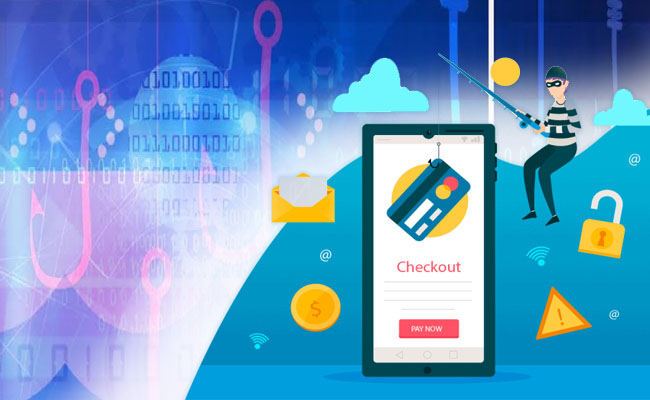New tricks to deliver phishing attacks
By MYBRANDBOOK

Hackers are constantly on guard, and these threat actors are evolving their attacks making themselves more potent over time. Starting 2023, phishing is still as large a concern as ever. Cybersecurity is experiencing a fierce conflict between hackers and security experts as a result of the exponential growth in technology.
Cyber criminals are trying new methods to help ensure phishing attacks are successful. The phishing emails infect victims with malware -- and they're doing so by experimenting with a new method of delivering the malicious payload. India has become one of the most frequently targeted countries for ransomware attacks this year.
As per the report from Proofpoint, there's been a rise in cyber attackers attempting to deliver malware using OneNote documents, a digital notebook signified by .oneextensions that is part of the Microsoft 365 office applications suite.
The question is why is phishing so favourite among black hats?
Because it plays as what has been often described as cybersecurity’s “weakest link”. The 2022 DBIR revealed, 82% of breaches involved the human element, and that largely means employees being duped into clicking on malicious links and diving into fraudulent sites.
why it’s important that all companies know how to spot some of the most common phishing scams if they are to protect their corporate information. It’s also crucial that their employees are familiar with some of the most common types of techniques that malicious actors use to pull off these scams.
After all, they are the ones on the front line. However, it’s unfair to put all the blame on humans as weak security measures account for much of the exploits that slip through. A person can’t click on what’s not there, so email security platforms, digital risk protection, and anti-phishing solutions are a key element. However, you can’t defend against what you don’t understand.
Researchers warn that it's likely these campaigns have a high rate of success if the emails aren't blocked -- and that more cyber-threat groups are likely to adopt this technique to successfully deliver phishing and malware campaigns.


Legal Battle Over IT Act Intensifies Amid Musk’s India Plans
The outcome of the legal dispute between X Corp and the Indian government c...

Wipro inks 10-year deal with Phoenix Group's ReAssure UK worth
The agreement, executed through Wipro and its 100% subsidiary,...

Centre announces that DPDP Rules nearing Finalisation by April
The government seeks to refine the rules for robust data protection, ensuri...

Home Ministry cracks down on PoS agents in digital arrest scam
Digital arrest scams are a growing cybercrime where victims are coerced or ...


ICONS OF INDIA : SANDIP PATEL
Sandip Patel is the Managing Director for IBM India & South Asia regio...

Icons Of India : MUKESH D. AMBANI
Mukesh Dhirubhai Ambani is an Indian businessman and the chairman and ...

Icons Of India : GAUTAM ADANI CHAIRMAN ADANI GROUP
Gautam Adani is the Founder and Chairman of the Adani Group, which ran...


BEL - Bharat Electronics Limited
BEL is an Indian Government-owned aerospace and defence electronics co...

GSTN - Goods and Services Tax Network
GSTN provides shared IT infrastructure and service to both central and...

C-DOT - Center of Development of Telematics
India’s premier research and development center focused on telecommu...


Indian Tech Talent Excelling The Tech World - NEAL MOHAN, CEO - Youtube
Neal Mohan, the CEO of YouTube, has a bold vision for the platform’s...

Indian Tech Talent Excelling The Tech World - RAVI KUMAR S, CEO- Cognizant
Ravi Kumar S, appointed as CEO of Cognizant in January 2023, sets the ...

Indian Tech Talent Excelling The Tech World - Soni Jiandani, Co-Founder- Pensando Systems
Soni Jiandani, Co-Founder of Pensando Systems, is a tech visionary ren...
 of images belongs to the respective copyright holders
of images belongs to the respective copyright holders